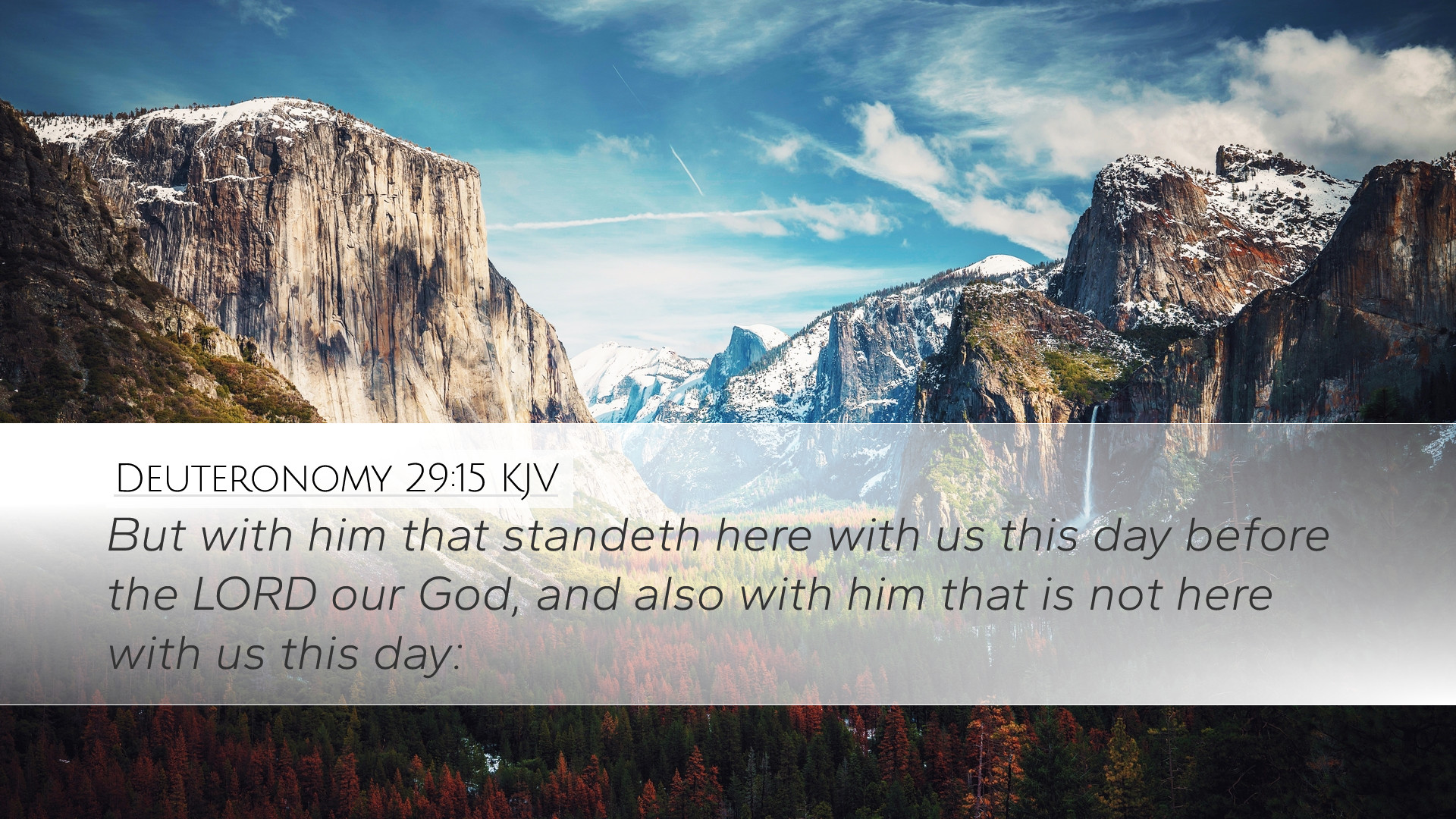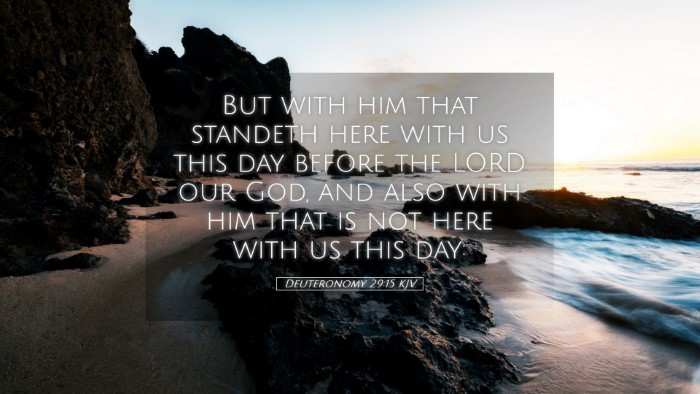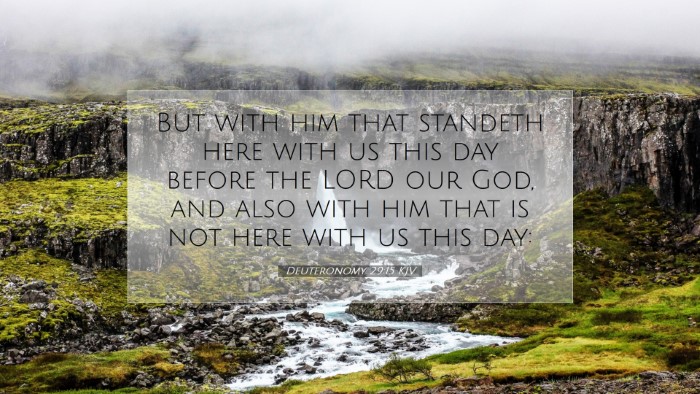Commentary on Deuteronomy 29:15
Deuteronomy 29:15 states:
"But with him who stands here with us today before the LORD our God, as well as with him who is not here with us today."
This verse occurs within the context of Moses' final address to the Israelites before they enter the Promised Land. It emphasizes the covenant relationship between God and His people, extending beyond just those present to include future generations.
Context and Historical Background
This passage is part of a larger section where Moses recounts the covenant made with the Israelites and reminds them of their obligations to God. Historically, this address was given at the plains of Moab, where the Israelites prepared to cross into Canaan. The urgency of Moses is palpable as he seeks to instill a sense of responsibility to keep the commandments of God.
Theological Significance
From a theological standpoint, this verse reflects the inclusivity of God's covenant. It underscores the notion that the blessings and responsibilities laid out are meant for not just those present but also for those who would come after them. This speaks to the continuity of faith and the importance of passing down spiritual truths through generations.
Insights from Public Domain Commentaries
Matthew Henry's Commentary
Matthew Henry articulates that this verse indicates a solemn recognition of all who are part of the covenant community. He points out that the mention of "him who is not here with us today" speaks to the Israelites' accountability to future generations. Henry highlights that it emphasizes God's everlasting faithfulness and the perpetuity of His promise, where all future believers are included in the blessings and obligations established at this pivotal moment.
Albert Barnes' Notes on the Bible
Albert Barnes offers insights into the broader implications of this passage. He remarks that the covenant involves not only the obligations that the Israelites bear themselves but also a commitment to ensure these obligations are imparted to their descendants. Barnes suggests that Moses emphasizes the necessity of teaching and enjoying the covenant blessings as a community, fostering a communal identity centered around their relationship with God.
Adam Clarke's Commentary
Adam Clarke provides a detailed exegesis on the inclusivity of this verse, noting that it addresses both the Israelites standing before Moses and those yet unborn. He posits that this phrase embodies God's foresight in ensuring His love and commandments span across generations. Clarke also reflects on the implications of belonging to a communal faith, where every new believer links back to the original covenant established by God at Sinai.
Practical Applications
For pastors, students, and theologians, this verse serves as a profound reminder of the importance of nurturing faith in community. Here are some practical applications:
-
Generational Faithfulness: Emphasize the importance of teaching future generations about God's commands. This can manifest in church educational programs, family devotions, and mentorship.
-
Covenant Community: Recognize and foster the idea that being part of the church is being part of a covenant community. The faithfulness of current believers impacts the future witnesses to God's truth.
-
Inclusivity of the Gospel: Understand that the Gospel call extends beyond the immediate to incorporate all who have yet to hear or believe. This encourages outreach and evangelism among all demographics.
-
Prayer for Future Generations: Develop a habit of praying for those who will come after you in the faith. This not only positions the community in a posture of hope but also reflects God's desire for all to know Him.
Conclusion
In conclusion, Deuteronomy 29:15 serves as a powerful reminder of the unbroken covenant between God and His people, extending from the Israelites to future generations. Through the insights derived from respected commentaries, we can see the importance of this message for contemporary faith communities. Let us be diligent in our teaching, accountable for our witness, and intentional about fostering a living faith that will carry into the future.


